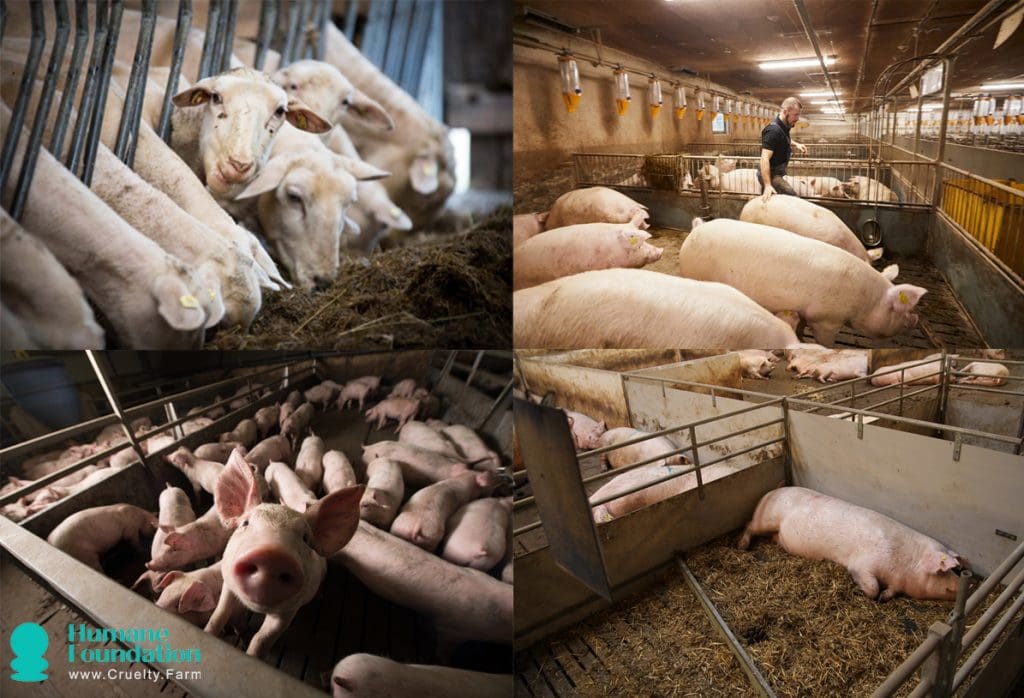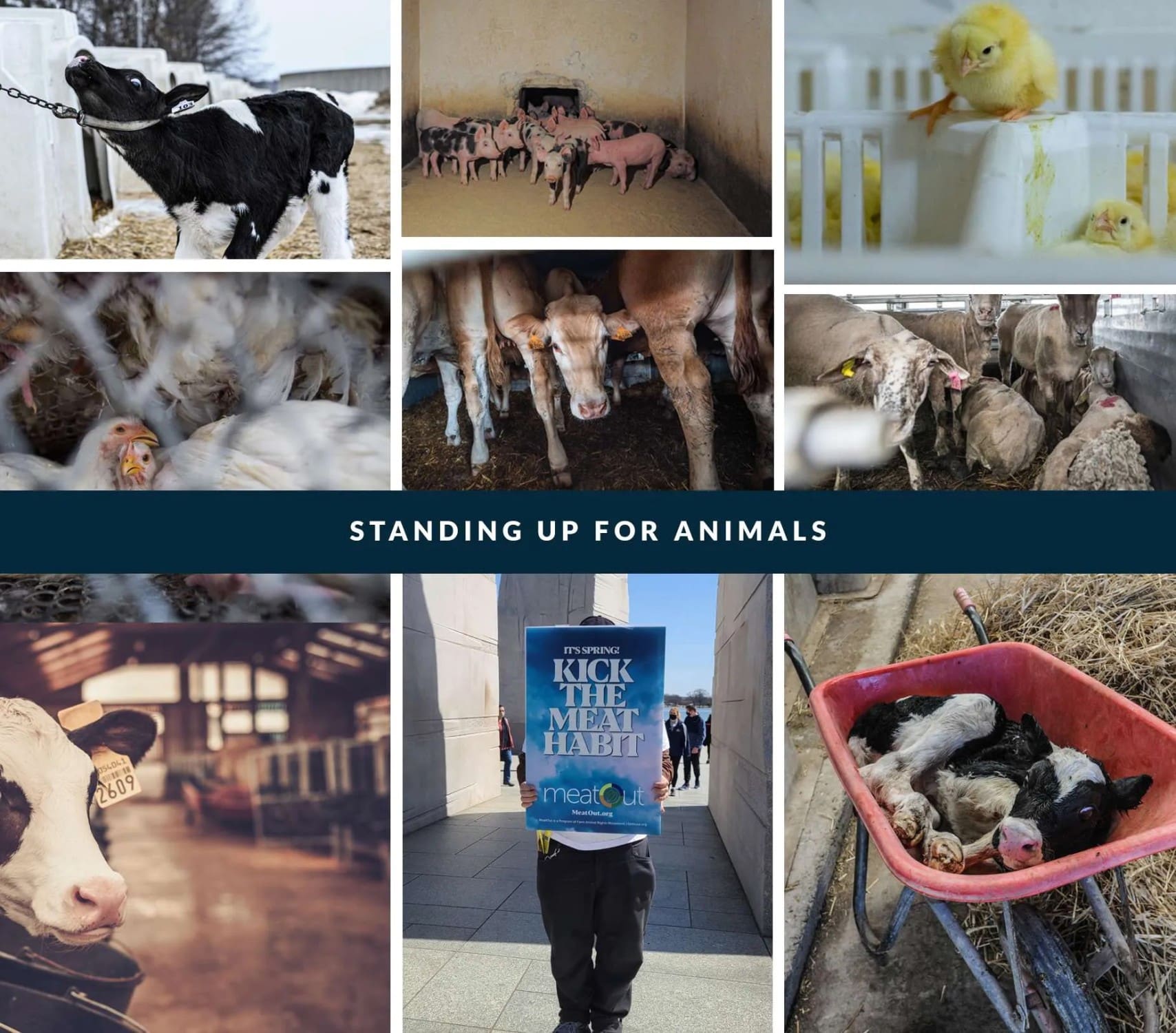When it comes to the ethical considerations of animal consumption and the vegan choice, there are numerous factors to take into account. From the impact of animal agriculture on the environment to the health benefits of a vegan diet, the philosophy behind veganism, and the rise of plant-based alternatives, the debate surrounding ethical eating is multifaceted and complex. In this post, we will delve into these topics to explore the reasons why more and more individuals are choosing a vegan lifestyle for ethical reasons.
Impact of Animal Agriculture on the Environment
Animal agriculture is a leading cause of deforestation, water pollution, and greenhouse gas emissions.

- Switching to a vegan diet can significantly reduce an individual’s carbon footprint.
- Factory farming contributes to soil degradation and loss of biodiversity.
- Livestock farming requires large quantities of water and land, leading to resource depletion.
- Reducing meat consumption can help combat climate change and preserve natural ecosystems.
Health Benefits of a Vegan Diet
Studies have shown that a plant-based diet can lower the risk of chronic diseases such as heart disease and diabetes.
Vegans tend to have lower cholesterol levels and blood pressure compared to meat-eaters.
Plant-based foods are rich in essential nutrients like fiber, vitamins, and antioxidants.
A vegan diet can help maintain a healthy weight and reduce the risk of obesity.
Eliminating animal products from one’s diet can lead to improved overall health and well-being.
Animal Welfare in the Food Industry

Factory farming practices often prioritize profit over animal welfare.
Animals raised for food are subjected to confinement, stress, and inhumane living conditions.
The lack of regulations in the food industry allows for animal cruelty to go unchecked.
Supporting ethical and sustainable farming practices can help improve animal welfare standards.
Consumers have the power to demand transparency and accountability in the treatment of animals in food production.
The Philosophy Behind Veganism
Veganism is rooted in the belief that all sentient beings deserve respect and compassion. Many vegans choose their lifestyle based on principles of non-violence and ethical treatment of animals. The concept of veganism extends to other aspects of life, promoting sustainability and environmental conservation. Vegans value interconnectedness and advocate for a more harmonious relationship with nature. The philosophy of veganism challenges societal norms and fosters empathy towards all living beings.
Sustainability and Veganism
Veganism promotes sustainable practices by reducing the demand for animal products.
Plant-based diets have a lower ecological footprint compared to diets rich in animal products.
Sustainable farming methods can help preserve natural resources and protect the environment.
Choosing vegan options can support ethical and environmentally-friendly food production.
Embracing veganism is a proactive step towards a more sustainable and regenerative food system.
Ethical Dilemmas of Factory Farming
Factory farming raises ethical concerns regarding animal welfare and treatment. The intensive confinement and mass production of animals in factory farms are subjects of debate. Consumers face moral dilemmas when confronted with the realities of industrialized agriculture. The disconnect between consumers and the source of their food raises ethical questions. Educating oneself about factory farming practices can help individuals make informed ethical choices.

The Rise of Plant-Based Alternatives
The growing demand for plant-based alternatives reflects changing consumer preferences.
Plant-based products provide a cruelty-free and sustainable option for consumers.
Innovation in food technology has led to a wide variety of plant-based substitutes for animal products.
Plant-based alternatives offer delicious and nutritious choices for those transitioning to a vegan lifestyle.
The popularity of plant-based diets is fueling the development of new and innovative plant-based products.
Veganism as a Social Movement
Veganism has evolved from a personal choice to a global social movement advocating for animal rights. The vegan movement seeks to challenge the status quo and promote greater awareness of animal welfare issues. Activists and organizations work to raise consciousness about the impact of animal agriculture on society. Vegans engage in advocacy, education, and activism to promote ethical and sustainable food choices. Veganism as a social movement aims to foster compassion, justice, and respect for all living beings.

Nutritional Considerations of Vegan Living
A well-balanced vegan diet can provide all essential nutrients necessary for health and well-being.
Plant-based sources of protein, iron, calcium, and omega-3 fatty acids are readily available.
Careful planning and variety in food choices can ensure adequate nutrition on a vegan diet.
Nutritional supplements like vitamin B12 may be recommended for vegans to meet specific dietary requirements.
Consulting with a healthcare provider or dietitian can help individuals address any nutritional concerns on a vegan diet.
Challenges and Rewards of Embracing Veganism
Transitioning to a vegan lifestyle may pose challenges related to social situations and food availability. Vegans may face criticism, skepticism, or difficulty finding suitable dining options.

- Vegans may encounter resistance or lack of understanding from friends and family members.
- Finding vegan options when dining out or traveling can sometimes be challenging.
- Navigating social events or gatherings where animal products are prevalent may require additional planning and communication.
The rewards of veganism include improved health, ethical consistency, and environmental stewardship.
- By adopting a vegan lifestyle, individuals can align their actions with their values and beliefs.
- Choosing plant-based foods can have positive effects on overall health, such as lower cholesterol levels and decreased risk of chronic diseases.
- Embracing veganism promotes compassion towards animals and supports sustainable food practices.















































